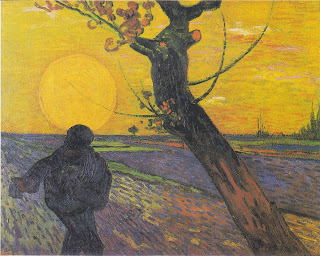Via Saturday Chorale, a beautiful polyphonic setting of the hymn for Lauds at the August 6 Feast of the Transfiguration. A short quote from the composer, Guy Forbes, acts as preface to the video (which is actually just audio!):
Here are the words in Latin, with English translation:
When I decided to set the O Nata Lux text to music, I consciously decided to take a different approach to the text than some composers of late. I focused on the idea of "light born of light" rather than something more akin to the "mystery of birth." The opening material of the piece is therefore, in a sense, a depiction of light breaking upon the world in a vibrant, visible way. The following section, "dinare clemens supplicum," has the melodic material divided between several parts. The idea here is that although we come together to ask God that our praises and prayers be deemed worthy and accepted, we make these requests as individuals. The picture, if you will, is of a group standing before God with each individually making his/her request, but with all echoing the thoughts and prayers of the others. – Guy Forbes.
The Louisville Cardinal Singers sing Guy Forbes' "O Nata Lux" which is elegantly lined with full, lush chords. This was sung at the New Music Festival at the University of Louisville in November, 2010.
Here are the words in Latin, with English translation:
O nata lux de lumine,
Jesu redemptor saeculi,
Dignare clemens supplicum
Laudes preces que sumere.
Qui carne quondam contegi
Dignatus es pro perditis.
Nos membra confer effici,
Tui beati corporis.
O Light born of Light,
Jesus, redeemer of the world,
with loving-kindness deign to receive
suppliant praise and prayer.
Thou who once deigned to be clothed in flesh
for the sake of the lost,
grant us to be members
of thy blessed body.









